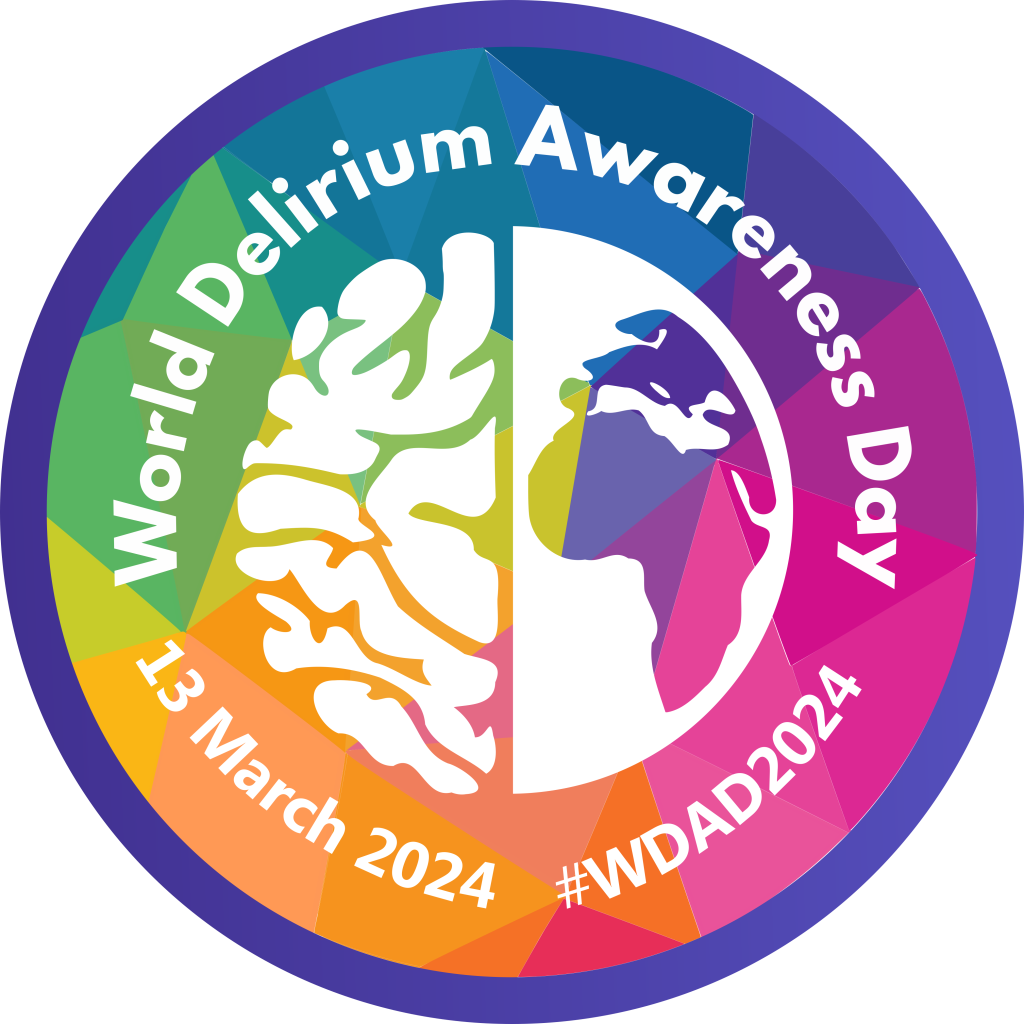28th February 2024
World Delirium Awareness Day
13th March 2024

Delirium is a common clinical syndrome, characterised by disturbed consciousness, reduced cognitive function and altered perception with symptoms such as paranoia, hallucinations, or delusional ideation.
Delirium has an acute onset, it usually develops over 1–2 days and often has a fluctuating course.
Delirium is a serious condition that is associated with poor outcomes.
It can often be prevented and treated if dealt with urgently.
Delirium can effect anyone but the highest risk factors are:
- Aged 65 or over
- Dementia or cognitive impairment
- Hip fracture or immobility
- Severe illness.
If your patient has any of these risk factors in acute care, the Regional Delirium Care Pathway should be used for their entire hospital admission.
Further information can be obtained from NICE guidance: Overview | Delirium: prevention, diagnosis and management in hospital and long-term care | Guidance | NICE
Order the Delirium Care Pathway via e-procurement using the code WPH001542
